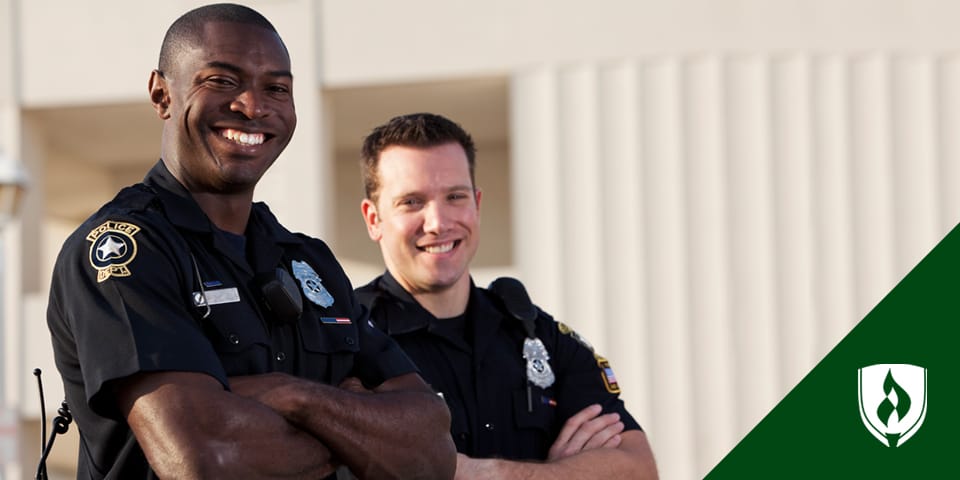Law Enforcement
Certificate
Finish in as few as
9 months Academic Certificate1
Learning includes
- Online
Intended for
Students who already have a degree from a regionally accredited school. Students who have a passion to protect and serve the communities in which they live as a police officer.
The online law enforcement degree certificate is for those who wish to enter the field of law enforcement and meet the academic component of the Professional Peace Officer Education program approved by the MN POST Board.
Prepares you for
Police officer, conservation officer, alcohol law enforcement agent, deputy sheriff, state trooper, security officer
Law Enforcement Degree
Associate's Degree
Finish in as few as
18 months1
Learning includes
- On-Campus and Online Classes
- Field Experience
Intended for
Students without a degree who wish to enter the field of law enforcement, or students with a conferred Associate’s degree who wish to complete their skills training in pursuit of a second degree and a career in Law Enforcement.1 Students who have a passion to protect and serve the communities in which they live as a police officer. Upon graduation, students will meet the academic and physical skills components necessary to sit for the Minnesota Peace Officer Licensing Exam.
Prepares you for
Police officer, conservation officer, alcohol law enforcement agent, deputy sheriff, state trooper, security officer

